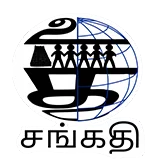
= 96% of more than 2,900 households surveyed have been affected by the current crisis in some way
=Launches urgent call for humanitarian financing until core economic issues are addressed by government
= Says humanitarian assistance for a certain period of time can mitigate risks of negative coping mechanisms
=Effort not seen easy as donors prioritize among other crises in the world
By Sanath Nanayakkare
A survey report produced by the International Federation of Red Cross and Red Crescent Societies provides first-hand evidence of how the most vulnerable people, who are already under the poverty line, are being driven further towards despair.The report gravely warns that without immediate humanitarian interventions, the impact on communities is likely to be long-lasting and cumulative.To meet the country’s spiralling needs, the IFRC has launched an Emergency Appeal for urgent humanitarian assistance for 28 million Swiss francs in support of Sri Lanka Red Cross. The Island learned that 15% of the target amount of donations has already been received from donors in the U.K., Canada, Japan and a number of other nations that are empathetic towards Sri Lanka.
The needs assessment conducted by Red Cross in 11 of the country’s 25 districts has found that 96% of more than 2,900 households surveyed have been affected by the current crisis in some way—with food insecurity, health, livelihoods, and nutrition among the top concerns. Deteriorating physical safety and security, as well as violence against women and children stood out in the report.It uncovered worryingly high problem of access to food, either because of high cost, income stress or lack of availability. Runaway inflation and loss of livelihoods have doubly impacted people’s ability to cope with the record cost of living. Income loss is causing significant food insecurity, while inflation is driving up the cost of medicine and fuel costs are preventing access to essential healthcare.
Alexander Matheou, Regional Director, Asia Pacific of the International Federation of the Red Cross and Red Crescent Societies who was on a visit to Colombo to meet with affected communities, government authorities and the diplomatic community said:
“The deepening economic crisis is forcing people to make heartbreaking choices between going hungry, buying life-saving medicine, or finding the money to send children to school. Our survey is not exhausted, so we cannot say it’s a final statement, but it indicated that vulnerability is being experienced evenly across the country and some groups are more affected than others.”
“I think that a survey like this one is going to help because it’s evidence-based. Our argument is widely accepted that in an economic crisis like this vulnerable communities’ income is affected, and so, the coping mechanisms tend to be negative. They sell their assets. Children may drop out of school, girls may get married early; these are all negative coping mechanisms from which it is very difficult to recover. Our argument is that humanitarian assistance for a certain period of time can mitigate the risks of some of those negative coping mechanisms. This is not a permanent solution. So we are always in favour of development financing, World Bank loans, ADB loans, debt restructuring and assurances from bilateral partners because ultimately the solution has to be found out at governmental level. We hope that friends of Sri Lanka will recognise that humanitarian support should be part of how they are trying to work with this country throughout this crisis; not the core issues, but the humanitarian aspects of it. We hope we will be successful in persuading donors. I understand that donors will have to prioritize among other crises in the world. So I don’t think it will be easy. But I think the argument is strong and this survey will help us make this argument in a more compelling
“Hopefully this economic crisis won’t last forever. So we think if we can intervene for a year two for the most vulnerable people and can mitigate the risks of those negative coping mechanisms being adopted, that will be a good intervention.”
“The ideal intervention will be with cash distribution because cash allows people to make those choices. Should I eat? Should I take medicine? Do I fix my roof? What is posing the greatest pain and risk in my life? Sometimes you have to provide nutritional support for pregnant mothers and breast-feeding mothers. That will be one of the interventions we make. We may look at an agreement with the government for school feeding programmes which is a very good way to keep children in school. If any ongoing school feeding programme is stopped, that’s another area we can intervene. We are also very keen to find ways to have feedback mechanisms and raise awareness on the risks of sexual and gender-based violence because the prevalence of these goes up when poverty increases. We are keeping an eye on that as well. Anything we can do to mitigate that we shall try.
“Humanitarian action is particularly important which is by nature neutral and impartial. Humanitarian financing can alleviate suffering of vulnerable people in a non-political way and when that financing is released, it will not be politicised.”
“Our main priorities remain meeting humanitarian needs at its worst. Unless this is done effectively and quickly, people who are struggling now will find themselves on a demeaning pathway to destitution from which there is no escape. The time to act is now.” Swiss franc to US dollar exchange rate: 1.001 USD equals 1 Swiss franc.

